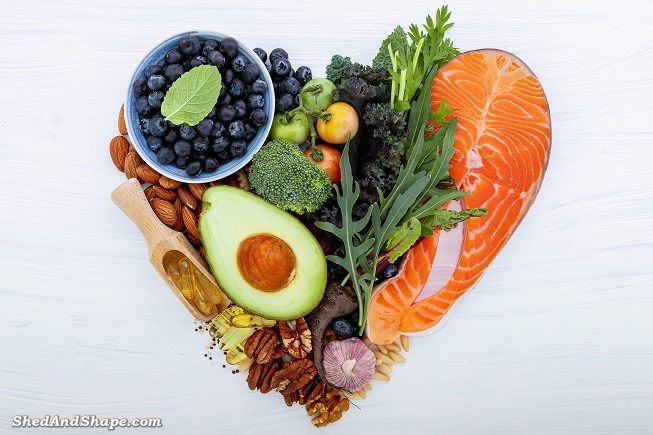The Proper Human Diet is one of those diets that have gained popularity over the past few years. Made famous by Dr Ken Berry, the diet is also called the “Dr Ken Berry Diet.” It requires following a low carb diet similar to the keto diet. The diet also consists mainly of meat and includes moderate low carb fruits and vegetables.
Patterned from the diet of humans in the old days, the Proper Human Diet steers clear of carbohydrate foods. If we eliminate carbs, we protect ourselves from various health issues. Most health issues people have these days are due to a poor Western diet consisting mainly of carbs.
Related reading: No Carb Diet | Is it Good for You?
Aside from helping you to stay healthy, the diet is also effective at helping you to lose weight. Let’s learn more about the Proper Human Diet to see how it works.
What is The Proper Human Diet?
The Proper Human Diet is all about eating foods and products derived from animals, which means no rice, pasta, potatoes, or grains. It also requires limiting your intake of dairy, fruits, and vegetables. Since it’s animal-based, it’s the opposite of the vegan or plant-based diet.
Related reading: Plant-Based Keto For Best Weight Loss?
While it might seem absurd to avoid plant-based foods, Dr Ken Berry believes these foods are not essential for humans to live. In fact, carbs, which are abundant in plants, are the only non-essential macronutrient. We only really need fats and proteins to survive, which means we can live without eating carbs.
Related reading: How To Cut Out Carbs Without Going Full Keto
The Proper Human Diet is somewhat similar to the keto and Paleo Diet, which stems from the belief that our ancestors survived eating only fish and meat.
High-carb diets are often the main reasons Western society experiences higher rates of chronic inflammation, autoimmune disorders, heart diseases, diabetes, heart problems, high blood pressure, and many other health issues.
According to the founder, Dr Ken Berry, a Board-Certified Family Physician,
“If you try to feed a highly processed modern diet to us, we get fat, we get sick, we get pre-diabetic, and we get fatty liver,”
What Foods To Eat on the Proper Human Diet?
Since the Proper Human Diet is about eating mostly animal products, it’s easy for most people to follow. But if you’re wondering what foods to eat while following this diet, refer to the list below:
1. Meat
When following the Proper Human Diet, your primary source of calories will come from fatty cuts of grass-fed beef such as ribeye, NY strip steak, ground beef, pork chops, and flank steak.
Since you need to restrict carbs, you should aim for meats with higher fat content. Your body will use these fats for producing energy.
Organ meats which have fallen out of favor in more recent times should be included in the diet. They contain a lot of essential nutrients that are essential for your good health. People who neglect to include them do not usually do as well on the diet as those who do.
Although many turn their noses up at offal there are ways of incorporating it into dishes so you don’t really notice it.
2. Fish
Like with eating meat, choose the fattiest fish you can find. The best ones are wild caught salmon, sardines, catfish, trout, and mackerel.
Avoid farmed fish at all costs as the fish can be full of pesticides, cancer-causing PCBs, and dioxins. It’s also important to avoid eating fish that is known to contain high levels of mercury. You can use this calculator to work out the amount of mercury you may be eating in fish.
3. Eggs
Also called “nature’s superfood,” good quality eggs have the perfect ratio of protein, fats, and essential nutrients to help your body function at its best. They can be a big help for the Proper Human Diet.
By good quality eggs I mean organic and pastured eggs. They come from chickens that are fed with 100% organic feed. They get no antibiotics, hormones, arsenic, nor poultry-slaughter byproducts.
4. Green leafy vegetables
While starchy and sweet vegetable are to be avoided you can eat as many green leafy vegetables as you like. Choose from arugula, kale, spinach, beet greens, collards, broccoli, Brussels sprouts, asparagus, endive, chicory and more.
Related reading: Health Benefits of Kale and Spinach for Keto
5. Bone Marrow
Bone broth is an excellent source of protein that’s approved for the Proper Human Diet. It’s also good for the skin, gut, and joints.
You can make bone broth yourself or buy it ready made. It you’re making it yourself make sure you get bones that contain marrow which contains a lot of nutrients.
6. Grease, Lard, and Animal-based Fats
When cooking your food, opt for lard and other animal-based fats. Avoid unhealthy vegetable oils which have been processed. The delicate fatty acids become damaged during processing so are not good for you.
7. Low-lactose Dairy
Aged cheese and green leafy vegetables are allowed on the Proper Human Diet since they are animal products. It’s best to get organic where possible.
Avoid low-fat or fat-free dairy products. The fat in dairy is actually the good part, not bad.However, it is best to keep them in moderation, or you could develop an intolerance.
8. Seasonings, Spices, Herbs, and Condiments
You are allowed spices, seasonings, herbs, good quality salt and pepper on the diet. By good quallity I mean salt that comes from ancient sea beds so it does not contain plastic micro-fibers like regular sea salt does.
Make sure to check that any seasonings you buy does not contain any sugar or carbs. If you want to add flavor to your food, opt for zero-calorie hot sauce.
What To Avoid
Since we are used to the Western Diet, the Proper Human Diet might seem restrictive for most of us. If you follow this diet, you avoid most foods you eat every day, including most fruits and some veggies. Here’s a list of foods to avoid.
- Sugars – added sugars must be avoided, including natural sugars.
- Bread, grain, pastries – grains or any bread is prohibited, including pasta and rice.
- High carb vegetables – this includes vegetable broths and any vegetable-based seasoning.
- Fruits – these are apples, bananas, mango, grapes, papaya and other fruits high in carbs. Many fruits contain too much natural sugar and will elevate your insulin level, which will lead to weight gain. Berries can be eaten in moderation.
- Nuts, seeds, and legumes – most nuts, legumes, and seeds are not allowed, including peanuts, chia seeds, flax seeds, etc.
- Anything else that is not meat – even lab-grown meats and meat alternatives are not allowed.
Benefits of The Proper Human Diet
Although its main benefit is weight loss, the Proper Human Diet has many other health benefits. So, here are some of the benefits you can gain from following this diet.
Weight Loss
Just like the ketogenic diet, the Proper Human Diet can help you lose weight fast since you’re transitioning your body to ketosis, where your body will rely on fats for energy. Once you are fat-adapted, your metabolism can use the dietary and stored body fats as fuel. As a result, you will be burning off your body fat.
Decreased Inflammation
A carbohydrate-rich diet is often the main reason behind inflammation. Processed foods have been linked to increased inflammation in the body. Therefore, if you restrict carbs by following the Proper Human Diet, you’ll be at low risk for inflammatory diseases.
Mental Clarity
Many meat eaters have reported an increased mental clarity, energy, and focus, mainly because they avoided carbs in favor of protein-rich foods. Once your body becomes fat-adapted by relying on fats for energy, you will have improved focus, which helps you to be more productive.
Final Thoughts
As you can see, the Proper Human Diet has the same concept as the keto diet, wherein you will replace carbs with healthy fats to lose weight and prevent inflammatory diseases.
Although it’s very restrictive it’s pretty easy to follow. All you need to do is to focus on eating meats and avoid all carbo-laden foods. But, before you switch to any diet, it’s a good idea to talk to your doctor or nutritionist first.










